Part II Of A Now III Part Series
by Charles C. Bonniwell
After the publication of our initial segment in November, “CDOT IN TOTAL DISARRAY,” the Chronicle has been inundated with additional information from present and former CDOT employees as well as other interested parties. As a result, what was originally envisioned as a two-part series has now been expanded to a three-part series, with the final installment coming in our January 2020 edition.
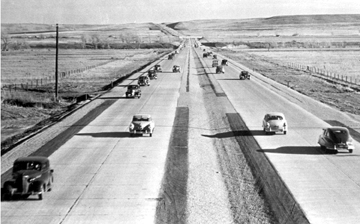
Coloradans are increasingly spending hours stuck in traffic, some of which is unnecessary, insiders tell the Chronicle. Former and current employees of the Colorado Department of Transportation (CDOT), as well as in-state contractors, assert that the state agency formed in 1917 to direct the transportation needs of the state “no longer builds roads” but simply now makes schedules that are seldom accurate. The primary goal at CDOT has become avoiding blame or liability for the botched schedules and/or designs resulting in massive additional costs for CDOT projects and long delays in road projects being completed. The schedules have been weaponized by CDOT to use against contractors when projects are delayed or run over budget, even where the primary blame should fall on CDOT.
CDOT once revered for competence and non-partisanship has become a political football whose overall mission is increasingly unclear and muddled. Governor Jared Polis, upon coming into office, replaced highly respected and seemingly well qualified Michael Lewis (who had been appointed by then Governor Hickenlooper) with 35-year-old history major Shoshana Lew. She is the daughter of Jack Lew, the former Chief of Staff of President Obama and later his Secretary of the Treasury. Ms. Lew was reportedly hired by Governor Polis as a personal favor to former First Lady Michelle Obama. In interviews with media, including Colorado Public Radio, she has strikingly avoided discussing roads and instead emphasizing bike lanes, buses, light rail and multi-modal transportation. Her failure to respond to and, in some cases, even understand questions from callers on “The Mandy Connell Show” on 850 KOA Radio, caused her to be banned from the show which has a tradition of featuring the head of CDOT to discuss transportation issues in Colorado. CDOT employees indicate that she so dislikes traffic in the Denver area that she has an employee chauffeur her around town, a luxury few Coloradans can afford.
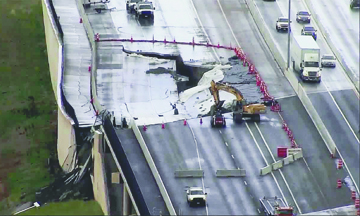
With transportation dollars relatively scarce in Colorado and the state legislature unlikely to increase any funding any time in the foreseeable future, making funding as cost efficient as possible would logically be of paramount importance to CDOT, but the opposite appears to be the case. In 2013 the legislature did away with the requirement that all public projects in excess of $50,000 had to be “awarded by competitive bid.” In its place it provided for the “best value” model in which bids come in as either (1) Design Build (DB); or (2) Construction Management/General Contractor (CMGC). Insiders view the “best value” as totally subjective and little more than a new form of manipulating the system so that two large out-of-state construction firms could be awarded 81% of all major construction projects distributed by CDOT in the last seven years.
The two firms are Kraemer North America, LLC, a subsidiary of the massive Japanese construction firm Obayashi Corporation and Kiewit Corporation, a Fortune 500 construction company based in Omaha, Nebraska. In-state contractors indicate that Timothy Maloney of Kraemer North America was extraordinarily effective in shepherding through CDOT and the state legislature the change in awarding contracts under the comically false title “Keep Jobs in Colorado Act.” Prior to its enactment the majority of CDOT projects went to in-state firms. Set below are the $3.7 billion in major projects awarded over the last seven years by CDOT:
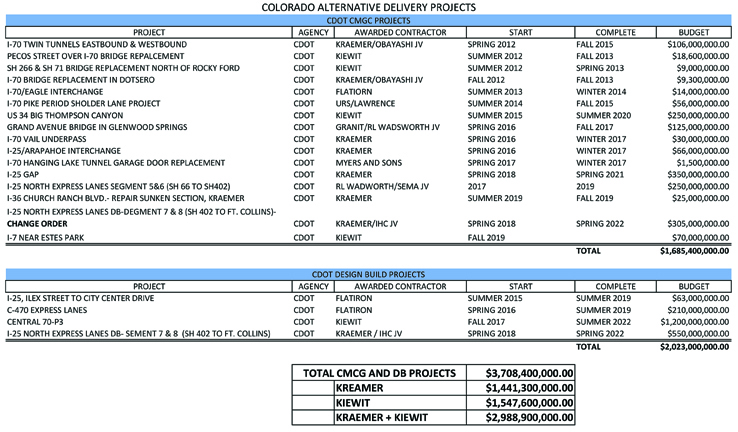

To apply to be awarded a DB or CMGC costs firms tens of thousands of dollars. Insiders indicate that CDOT encourages firms to apply in order to make the process look above board. But the in-state contractors are then rejected on the basis that they have never done a large DB or CMGC project. It is becoming increasingly difficult to con in state firms to submit bids which they cannot win with the massive project almost inevitably going to Kraemer or Kiewit or other international firms like Flatiron Construction, a subsidiary of the massive German conglomerate HOCHTIEF.
In turn, Kiewit and Kraemer don’t even want to have to prepare bids in the semi sham process as they are costly and time consuming, so they have come up with a new method by using the so-called “change order” scheme. Ordinarily a “change order” is a change in an existing project that is different from what was originally contemplated, but words can be manipulated to mean whatever someone wants.
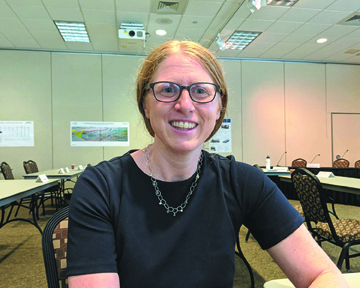
Regarding the over $300 million project to build express lanes on I-25 from State Highway 402 to Fort Collins rather than having to go through a bidding process, Kraemer got CDOT to simply declare that it was going to do a “change order” to the $250 million project for express lanes from State Highway 66 to State Highway 402. Little did it seem to matter that the so-called “change order” was larger than the entire original project and a wholly different section of I-25.
Cost Of Consultants
The massive costs of CDOT projects is in large part due to the so-called “best value” method of bidding rather than “lowest bidder,” but it is significantly exacerbated by the utter dependence on outside consultant firms largely staffed with former CDOT employees who have retired with PERA pensions at relatively young ages. CDOT no longer has the in-house capacity to perform many of the everyday functions that it once did 20 years ago. Determining which outside consultants to utilize is once again on a subjective basis and a consultant without a significant number of former CDOT employees has little chance of being awarded a contract. Moreover, CDOT employees have no incentive to look after the taxpayers when dealing with former work colleagues. Furthermore, many of those now in CDOT plan to join a consultant once they are eligible to retire under PERA and hope for similar lenient treatment when they are on the outside.

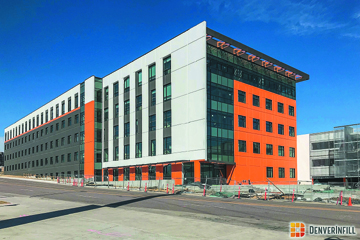
In May 2019 the Colorado State Auditor did a Performance Audit of CDOT and found that problems with 80 of the 84 CDOT agreements with consultants including “unapproved consultant labor rates, contracts without proper approvals and contract terms that did not comply with state requirements.”
While it was generally known that outside consultants significantly added to the cost of CDOT projects the full extent of the problem was not previously quantifiable. The chart below is based on very recent internal CDOT calculations and if anything underestimates the problem in which consultant fees have averaged over the last four years $226,500,000 per annum adding 32.5% to the cost of CDOT projects.
Specific Projects
Next month the Chronicle will examine three particular projects which are:
• The $1.3 billion 10-mile Central 70 Project;
• The $226 million 12.5-mile C-470 Project;
• The $500 million I-25 North Expansion Lanes.
The delays, the cost overruns, the crony bidding and other problems on these projects help identify the major concerns with today’s dysfunctional Colorado Department of Transportation.
